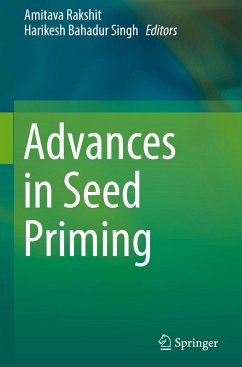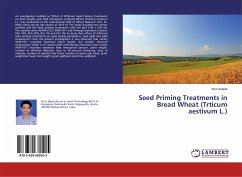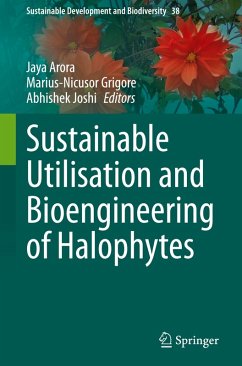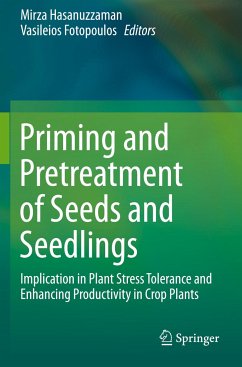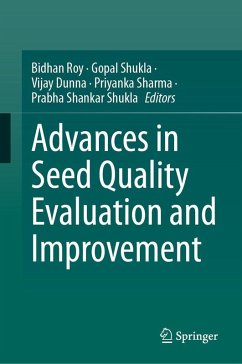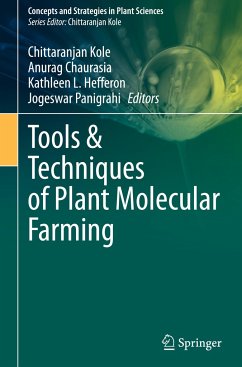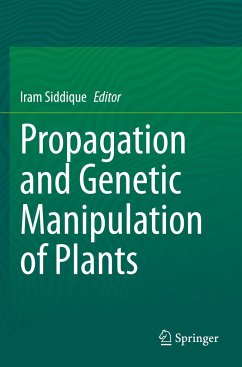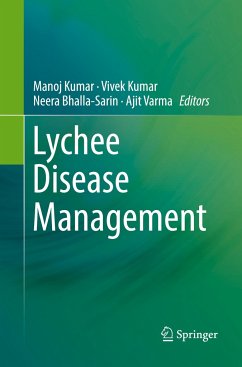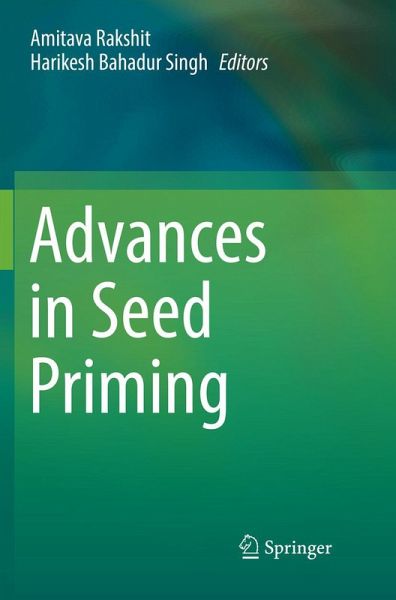
Advances in Seed Priming
Versandkostenfrei!
Versandfertig in 6-10 Tagen
129,99 €
inkl. MwSt.

PAYBACK Punkte
65 °P sammeln!
Most crop plants grow in environments that are suboptimal, which prevents the plants from attaining their full genetic potential for growth and reproduction. Stress due to abiotic and biotic agents has a significant effect on world food production. Annually, an estimated 15% of global yields are lost, but this figure belies far greater losses for specific food systems and the people whose existence is dependent upon them, particularly in developing countries. Current efforts to mitigate these losses are worryingly over-reliant on the use of sophisticated and costly chemicals /measures with sub...
Most crop plants grow in environments that are suboptimal, which prevents the plants from attaining their full genetic potential for growth and reproduction. Stress due to abiotic and biotic agents has a significant effect on world food production. Annually, an estimated 15% of global yields are lost, but this figure belies far greater losses for specific food systems and the people whose existence is dependent upon them, particularly in developing countries. Current efforts to mitigate these losses are worryingly over-reliant on the use of sophisticated and costly chemicals /measures with substantial economic and environmental costs, or on the development of efficient and smart crop varieties, which can take decades. What we need is a broad range of safe, robust and equitable solutions for food producers. One under-investigated approach is that of utilizing the crop plant's innate immune system to resist stress. More specifically, the innate immune system can be sensitized or 'primed' to respond more quickly and strongly to protect the plant against stresses. However, a strategy of employing priming in combination with reduced pesticide use can enhance protection, and help to meet commitments to reducing chemical inputs in agriculture.
This book discusses in detail different segments of priming in addressing stress factors and traits to increase competitiveness against all odds. Adopting a holistic and systematic approach, it addresses priming to counter climate-change related adverse effects coupled with pest and pathogen related stress on the productivity of crops utilizing natural resources to reap sustainable environmental, economic and social benefits for potential productivity of crops, maintaining synergy between soil, water and plants in ways that mimic nature.
This book discusses in detail different segments of priming in addressing stress factors and traits to increase competitiveness against all odds. Adopting a holistic and systematic approach, it addresses priming to counter climate-change related adverse effects coupled with pest and pathogen related stress on the productivity of crops utilizing natural resources to reap sustainable environmental, economic and social benefits for potential productivity of crops, maintaining synergy between soil, water and plants in ways that mimic nature.



